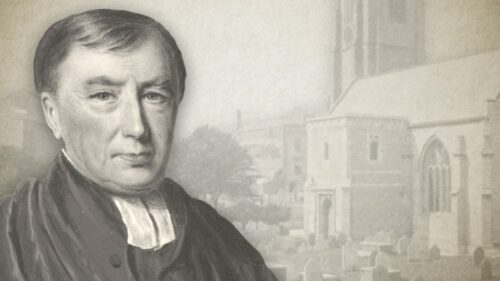
June 25—Morning Devotion
“The eyes of the Lord are upon the righteous, and his ears are open unto their cry.”—Psalm 34:15
My soul, never more allow thyself to suppose that thou art overlooked or forgotten amidst the immensity of God’s works. Is it not the province of a father to attend to the wants of his children? And will not God regard his own, that cry night and day unto him, though he bear long with them? This was the very argument of our Redeemer. Do you, saith Jesus, “that are evil, know how to give good gifts unto your children; and shall not your heavenly Father give his Holy Spirit to them that ask him?” But, my soul, while thou art taking comfort from this view of divine love, take with thee another sweet thought from this precious verse of scripture. Whose eyes are thus upon thee, and whose ears are thus open to thy cries, but those of the Lord Jesus? Oh how sweet the thought, that by reason of the Son of God, as Christ, being in our nature, and he having taken upon him our nature, he hath eyes to see, and ears to hear,, such as we have. What a blessed light the Holy Ghost hath thrown over all those precious passages in which God is spoken of as having eyes, and ears, and an arm, and the like, describing himself by human powers; that it is indeed the divine nature of the Man Christ Jesus. It is Jesus, the Mediator, the Redeemer, the exalted and triumphant Saviour, who hath all power in heaven and in earth; who “having loved his own which are in the world, hath loved them unto the end.” My soul, learn then to behold in all these sweet portions, that it is Jesus, thy Husband and Brother, as well as thy God and Saviour, and both forming one glorious Christ, whose eyes are always upon thee, and whose ears are always attentive to thy cries, and to the cries of all his redeemed.
Robert Hawker (1753-1827) was an Anglican (High-Calvinist) preacher who served as Vicar of Charles Church, Plymouth. John Hazelton wrote of him:
“The prominent features…in Robert Hawker's testimony…was the Person of Christ….Dr. Hawker delighted to speak of his Lord as "My most glorious Christ.” What anxious heart but finds at times in the perusal of the doctor's writings a measure of relief, a softening, and a mellowing? an almost imperceptible yet secret and constraining power in leading out of self and off from the misery and bondage of the flesh into a contemplation of the Person and preciousness of Christ as "the chiefest among ten thousand and the altogether lovely." Christ and Him crucified was emphatically the burden of his song and the keynote of his ministry. He preached his last sermon in Charles Church on March 18th, 1827, and on April 6th he died, after being six years curate and forty-three years vicar of the parish. On the last day of his life he repeated a part of Ephesians 1, from the 6th to the 12th verses, and as he proceeded he enlarged on the verses, but dwelt more fully on these words: "To the praise of His glory Who first trusted in Christ." He paused and asked, "Who first trusted in Christ?" And then made this answer: "It was God the Father Who first trusted in Christ."
Robert Hawker on the Biblical Covenants (Complete)
Robert Hawker's Poor Man's Morning Portions





